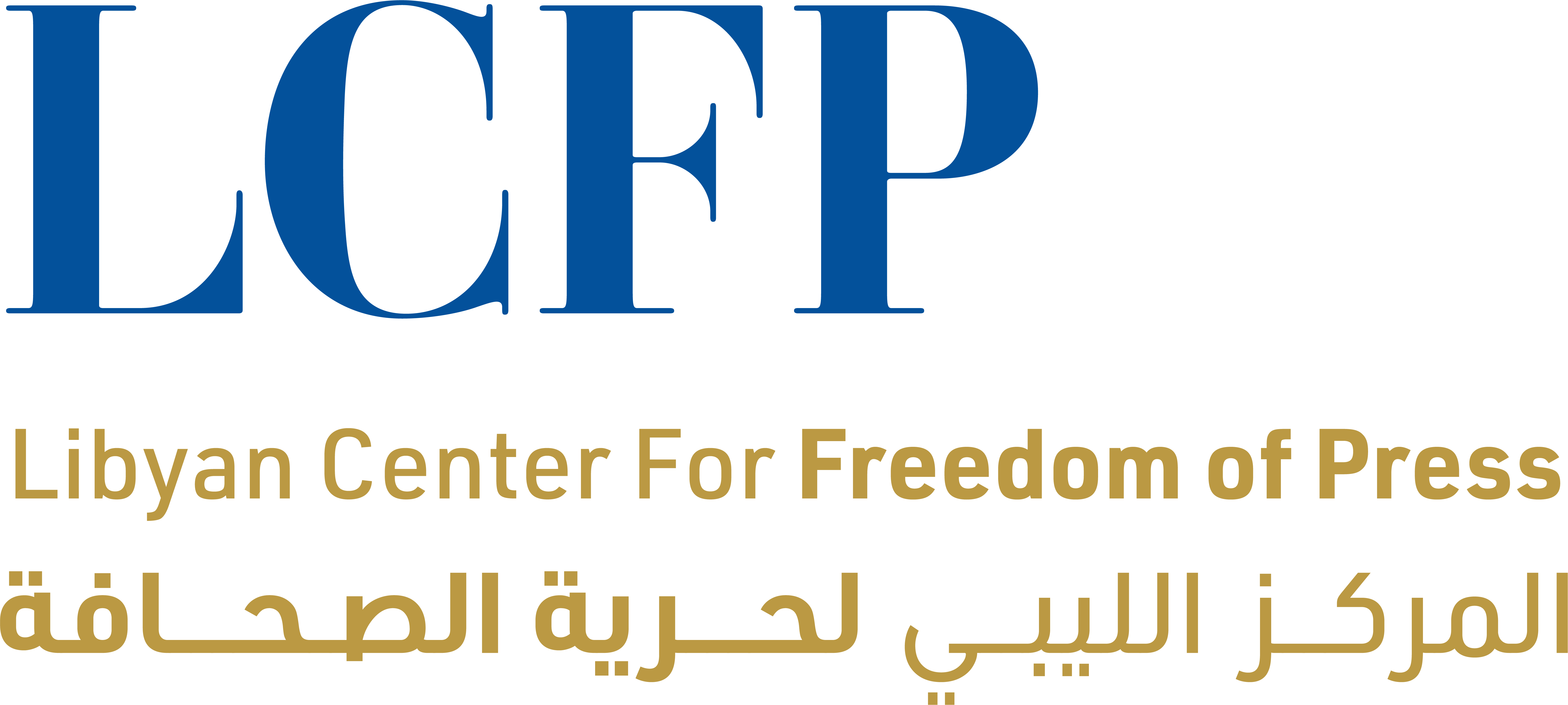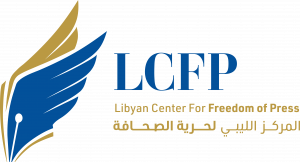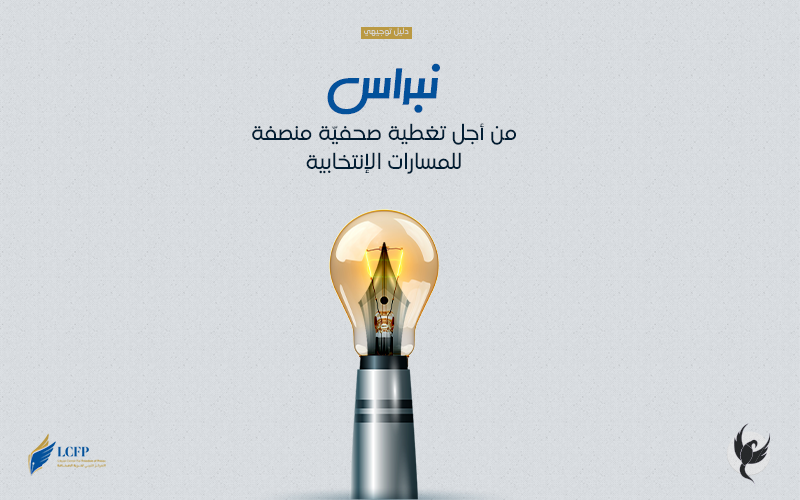
فبراير 11, 2024
طرابلس 15 فبراير.
يُطلق المركز الليبي لحرية الصحافة الدليل التوجيهي الأول ” نبــــراس ” حول المبادئ الأساسية لتغطية إعلامية مُنصفة للعملية الانتخابية.
ويرتكز هذا الدليل الذي يعد الأول من نوعه في المشهد الإعلامي الليبي على توظيف تقنيات الذكاء الاصطناعي والصحافة التفسيرية والصحافة الاستقصائية وصحافة البيانات من أجل صناعة مضامين إعلامية ذات جودة تضمن التعددية والنزاهة، فضلا عن التحقق من المعلومات حتى تكون موثوقة ومن شأنها أن تساعد الناخبين على اتخاذ القرار المستنير في كنف الاستقلالية.
ويسعى هذا الدليل الذي أنجزه الباحث والصحفي محمد اليوسفي إلى تكريس فكرة مساءلة المترشحين في الانتخابات وتجسيد واجب التدقيق والتحري في السير الذاتية والبرامج الانتخابية، بالإضافة إلى ضمان تكافئ الفرص بين المتنافسين في السباق الانتخابي في ظل حالة ضبابية تمويل وسائل الإعلام الخاصة، وتوظيف مُجملها لخدمة أغراض سياسية وأطراف بعينها، ناهيك عن التحكم والتوجيه الحاصل في علاقة بوسائل الإعلام العامة الممولة من أموال الشعب شرقاً وغرباً.
يأتي هذا الدليل التوجيهي ” نبراس ” ضمن مشـروع ” التغطية الإعلامية للانتخابات ما بعد النزاعات المُسلحة “.
كما قٌمنا خلال المشروع بتدريب 120 صحفي/ة في 8 مُدن ليبية، طيلة 24 شهراً الماضيين، وبناء نواة فريق للرصد الإعلامي وقد أصدرنا تقريرنا الأول حول ( الدعاية السياسية وغياب التعددية في التلفزيون الليبي ).
بإمكانكم تحميل الدليل التوجيهي نبراس عبر الرابط التالي:
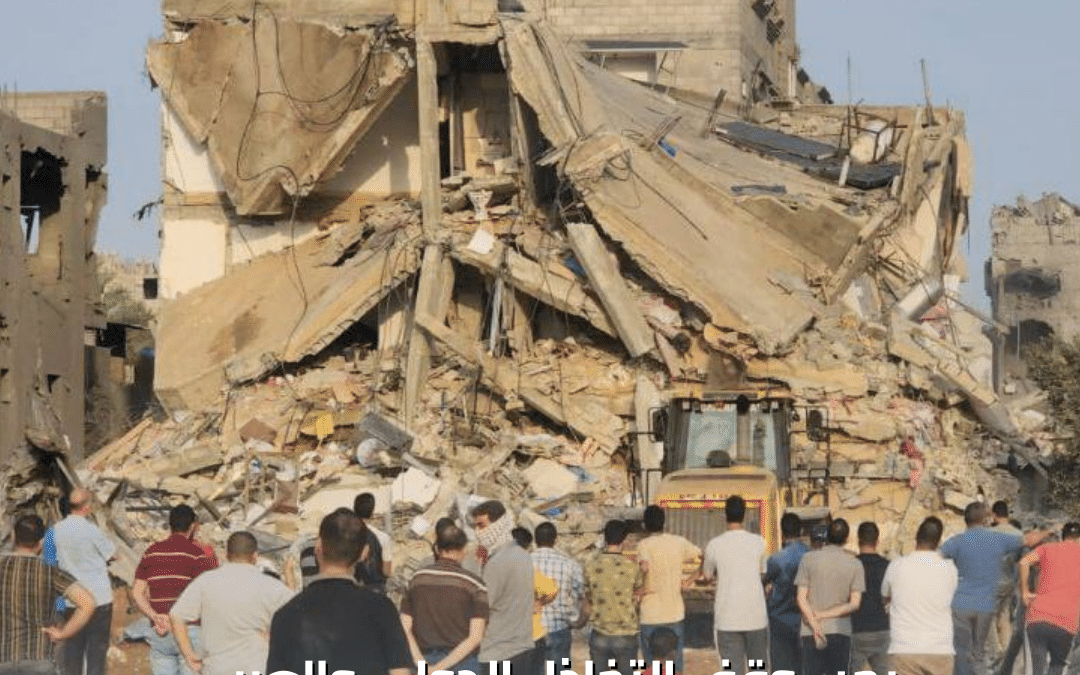
أكتوبر 24, 2023
يجب وقف التخاذل الدولي والعربي عن منع إبادة الشعب الفلسطيني
بيان مشترك عن 48 منظمة حقوقية من 8 دول عربية
تطالب المنظمات الحقوقية العربية الموقعة أدناه، الدول الأعضاء الدائمين بمجلس الأمن، والدول الأعضاء في جامعة الدول العربية بالتحرك الفوري من أجل منع تطور الأحداث نحو جرائم الإبادة الجماعية بحق المدنيين الفلسطينيين في غزة. وتؤكد على ضرورة أن تضطلع هذه الدول بمسئوليتها القانونية والسياسية، وتتقدم لمجلس الأمن بمشروع قرار في إطار البند السابع من ميثاق الأمم المتحدة لوقف فوري وغير مشروط لإطلاق النار، وفتح ممرات إنسانية آمنة لتوصيل المساعدات الحيوية فورًا، ووضع حد لاستخدام إسرائيل للتجويع كأداة حرب.
منذ اندلاع الأحداث الدامية في إسرائيل وفلسطين في 7 أكتوبر الماضي، أدلى الرئيس الأمريكي جو بايدن ونظيره الفرنسي إيمانويل ماكرون ورئيس الوزراء البريطاني ريشي سوناك، بعدد من التصريحات السياسية غير المسئولة التي تؤكد على حق إسرائيل المطلق، غير المشروط باحترام القانون الدولي، في الدفاع عن نفسها ردًا على هجمات حماس؛ دون اعتبار لأولوية حماية المدنيين التي يقتضيها القانون الدولي الإنساني وقوانين الحرب، فضلاً عن مبدأ التناسبية الذي يطبق في النزاعات المسلحة للحد من الضرر الملحق بالسكان والبنية التحتية المدنية جراء العمليات العسكرية، ومبدأ التمييز الواجب مراعاته قبل توجيه الضربات العسكرية.
هذه التصريحات المتواصلة غير المسئولة تم تعزيزها بشكل مادي بإرسال أساطيل حربية، حتى بعدما باشر جيش الاحتلال عملياته الانتقامية موجهًا ضرباته العسكرية للمدنيين الفلسطينيين والمدارس والمستشفيات والملاجئ التابعة للأمم المتحدة بالمخالفة لكل القوانين الدولية، مخلفًا دمارًا هائلاً للبنية التحتية المدنية، ومحدثًا إصابات مروعة بين صفوف المدنيين بما في ذلك الأطفال والنساء. بل والأخطر، أن هذا الدعم غير المشروط لم يتراجع حتى بعد تصريحات علانية لقيادات سياسية وعسكرية إسرائيلية تطالب بالتهجير القسري للمدنيين من غزة، وتتوعد بجرائم إبادة جماعية بحق الفلسطينيين، والذين وصفهم وزير الدفاع الإسرائيل وآف غالانت أنهم “حيوانات بشرية.” هذا التخاذل الحكومي الدولي والعربي حتى عن إدانة هذه الخطابات التحريضية الحاضة على العنف والإبادة ونزع صفة الإنسانية عن الفلسطينيين، هو بمثابة ضوء أخضر لتواصل إسرائيل جرائمها بحق المدنيين في غزة والضفة، والتي تصل حد جرائم الحرب والجرائم ضد الإنسانية.
ففي 18 أكتوبر، جاء تصريح الرئيس المصري عبد الفتاح السيسي متجاوبًا مع مخطط إسرائيل للتهجير القسري للفلسطينيين من أراضيهم، لكن إلى صحراء النقب وليس إلى سيناء. بل وأعلن تفهمه لهدف تصفية مقاومة الاحتلال دون أن يطالب بجلاء الاحتلال .وبالمثل تخاذلت أغلبية الحكومات ا العربية عن استخدام ما تملكه من موارد وأدوات اقتصادية وسياسية ودبلوماسية وأدبية للضغط على إسرائيل وحلفائها لفك الحصار وضمان وقف إطلاق النار ومنع حرب الإبادة.
كما فشلت جامعة الدول العربية في اعتبار الحصار المفروض على غزه، بما في ذلك استخدم إسرائيل للتجويع كأسلوب حرب؛ جريمة حرب وجريمة ضد الإنسانية. ولم يتضمن قرارها المتخاذل الصادر في 11 أكتوبر موقف عربي موحد إزاء هذه الجرائم. وبالمثل لم تتخذ المجموعة العربية أي مبادرة سواء في مجلس حقوق الإنسان أو في مجلس الأمن أو في الجمعية العامة للأمم المتحدة لاستصدار قرار أو توصية بوقف إطلاق النار أو فتح ممرات إغاثة إنسانية. أما السلطة الفلسطينية الحالية فقد تحولت تدريجيًا إلى ذراع أمني للاحتلال تفتقر لأي شرعية وتستخدم فقط من قبل الاحتلال من أجل تقييد الحقوق والحريات بالضفة الغربية.
ورغم إدانتنا الصارمة لاستهداف مدنيين إسرائيليين وأجانب في هجمات حماس على إسرائيل في 7 أكتوبر، وخطف مجموعات منهم كرهائن؛ إلا أننا نؤكد أن التصعيد الإسرائيلي الإجرامي ضد المدنيين ردًا على هذه الجرائم المرفوضة وما أسفر عنه من خسائر فادحة بين صفوف المدنيين، يتطلب من المجتمع الدولي نهجًا مختلفًا؛ يبحث بعمق في أسباب تفجر العنف وتكراره، ويحول دون عصف إسرائيل المتكرر بالقرارات والاتفاقيات الدولية، والتخاذل الدولي الممتد لعشرات السنوات عن محاسبتها وعن تمكين الفلسطينيين من حقهم في تقرير المصير والعودة.
أن نوعية الجرائم المرتكبة من سلطات الاحتلال بحق الفلسطينيين في الضفة الغربية وقطاع غزة خلال أكثر من 10 أيام ليست بجديدة، بل هي ممتدة ومتصاعدة لأكثر من نصف قرن. الأمر الذي أسفر عن مقتل آلاف المدنيين الفلسطينيين، والتوسع في بناء المستوطنات الإسرائيلية غير القانونية، وحصار قطاع غزة لأكثر منذ ١٨عاما بالتعاون مع الحكومة المصرية، ومصادرة حق الفلسطينيين في العودة وفي تقرير المصير. وبحسب التقارير الأممية المتعاقبة، تقاعست إسرائيل بشكل عمدي عن إجراء تحقيقات جنائية جادة حول هذه الانتهاكات والجرائم المرتكبة من قبل مسئوليها وقواتها بحق الشعب الفلسطيني، بما في ذلك الانتهاكات والجرائم المرتكبة خلال حملة «الجرف الصامد» و«مسيرة العودة الكبرى» و«عملية حراس الجدار» وعملية «بزوغ الفجر» وغيرهم. إذ تواصل إسرائيل الحفاظ على نظام تحقيق جنائي لا يلتزم بالمعايير الدولية ولا بإجراء تحقيقات شاملة وفعالة ومستقلة ونزيهة مع الجناة، خاصة من ذوي المناصب القيادية، والقادة العسكريين والمسئولين الحكوميين، فضلاً عن منعها دخول محققين دوليين لاستقصاء الجرائم المرتكبة في الأراضي المحتلة.كما أشارت الأمم المتحدة في العديد من تقاريرها؛ إلى اتباع إسرائيل سياسة شاملة للهندسة الديموغرافية ومنح الأراضي والموارد لمواطنيها من اليهود فقط، بعد انتزاعها من الفلسطينيين، وحرمانهم، بمن فيهم اللاجئين، من حقوقهم الأساسية غير القابلة للتصرف في ممارسات تصل حد جريمة الفصل العنصري، وسط إفلات تام من العقاب.
وبناء على ذلك تطالب المنظمات العربية الموقعة أدناه بما يلي:
- إلزام جميع الأطراف بالوقف الفوري لإطلاق النار بموجب قرار عاجل من مجلس الأمن.
- فتح ممرات إنسانية وممرات إغاثة عاجلة تضمن وصول المساعدات الحيوية للسكان المحاصرين في غزة ونقل المصابين والجرحى منهم للعلاج في مناطق آمنة مع التوقف الفوري عن التلويح بعدم إمكانية رجوعهم لغزة.
- إلزام إسرائيل بوقف استخدمها التجويع كأداة حرب، وضمان إمداد قطاع غزة بالماء والوقود والكهرباء فورًا دون قيد أو شرط حفاظًا على حياة المدنيين فيه.
- تباشر المحكمة الجنائية الدولية تحقيق عاجل في جميع الجرائم المرتكبة من كل الأطراف منذ 7 أكتوبر، وضمان تقديم الجناة للمحاسبة والعدالة الجنائية. والسماح لمحققيها بدخول كافة المناطق المتعلقة بالنزاع دون شرط او قيد لضمان حيادية التحقيقات.
- تتولى لجنة الأمم المتحدة المعنية بالأرض المختلة التحقيق في الأسباب الجذرية والعوامل المحفزة لتفجر العنف وتكراره، بما في ذلك خطابات التحريض والحض على الكراهية والعنف والقتل المرتكبة من جميع الأطراف.
- إجراء انتخابات برلمانية ورئاسية حرة ونزيهة في الأراضي المحتلة بمشاركة جميع الفلسطينيين دون تمييز، حتى يختار الشعب الفلسطيني ممثليه لقيادة عملية انجاز الحق في تقرير مصيره بنفسه وفقا لمقررات الشرعة الدولية.
المنظمات الموقعة:
- مركز القاهرة لدراسات حقوق الإنسان
- رصد الجرائم في ليبيا
- إيجيبت وايد لحقوق الإنسان
- الاتحاد العام للمعتقلين والمعتقلات
- الجبهة المصرية لحقوق الانسان
- الجمعية التونسية للدفاع عن الحريات الفردية
- الرابطة التونسية للشباب
- المبادرة المصرية للحقوق الشخصية
- المرصد السوداني لحقوق الانسان
- المركز السوري للإعلام وحرية التعبير
- المركز الفلسطيني للإرشاد
- المركز الليبي لحرية الصحافة
- المركز الليبي لحرية الصحافة
- المنبر المصري لحقوق الأنسان
- المنظمة الفلسطينية لحقوق الإنسان
- المنظمة الليبية للإعلام المستقل
- المنظمة الليبية للمساعدة القانونية
- النقابة الوطنية المستقلة لمستخدمي الإدارة العمومية الجزائر
- جمعية عدالة للجمعية
- رابطة عائلات قيصر
- شبكة أصوات
- شعاع لحقوق الإنسان
- لجنة العدالة
- لجنة صون الرابطة الجزائرية للدفاع عن حقوق الإنسان
- مؤسسة PASS – سلام لمجتمعات مستدامة
- مؤسسة بلادي لحقوق الإنسان
- مؤسسة حرية الفكر والتعبير
- مؤسسة دعم القانون والديمقراطية
- مؤسسة سيناء لحقوق الإنسان
- مؤسسة ضمير للحقوق والحريات
- مؤسسة وجود للأمن الإنساني
- مؤسسة يمن فيوتشر للتنمية الاعلامية والثقافية
- مبادرة تعافي
- مركز اعلام حقوق الانسان والديمقراطية -شمس
- مركز الإعلام الثقافي-اليمن
- مركز البحرين لحقوق الانسان
- مركز الدراسات الاستراتيجية لدعم المرأة والطفل
- مركز جوستيسيا للحماية القانونية لحقوق الانسان بالجزائر
- مركز دراسات الوحدة العربية
- مركز مدافع لحقوق الإنسان
- مركز معين للتنمية المجتمعية
- منصة اللاجئين في مصر
- منظمة الامان لمناهضة التمييز العنصري
- منظمة بيتنا
- منظمة ريليزمي العاملة مع النساء
- منظمة مساءلة لحقوق الإنسان
- منظمة مواطنة لحقوق الانسان
- هيومينا لحقوق الإنسان والمشاركة المدنية
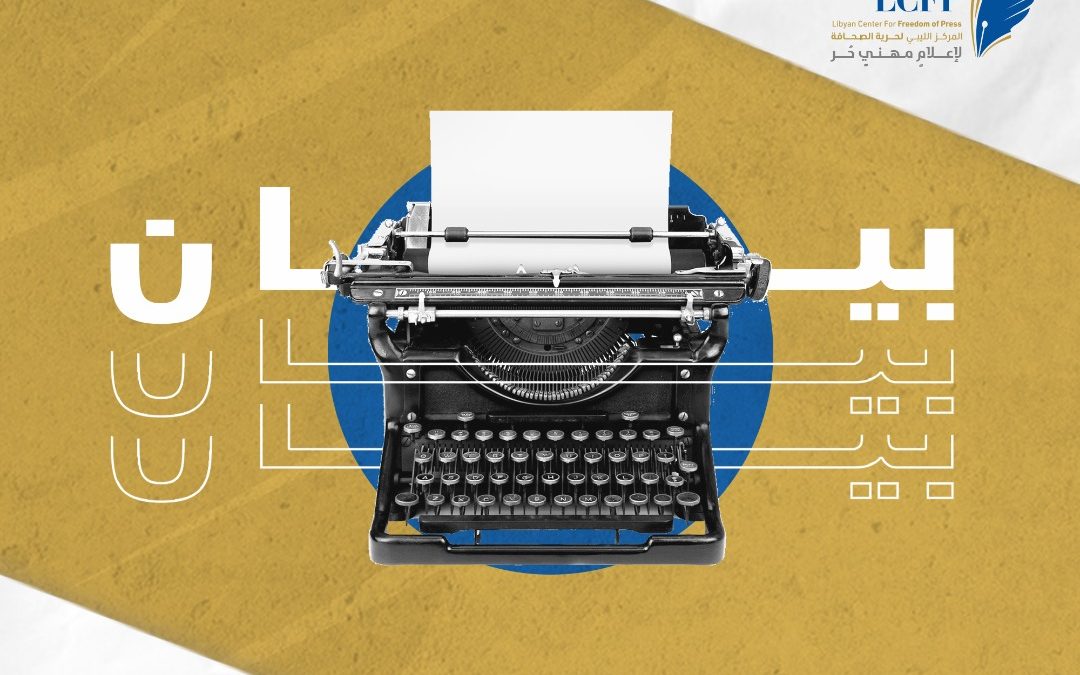
فبراير 13, 2022
طرابلس / 24 يناير
ترتكز الرؤية الأساسية لتحالف المنظمات غير الحكومية المعنية بالإعلام وحقوق الإنسان والتنمية المجتمعية على وضع استراتيجية وطنية متكاملة لأجل الدفاع عن حرية التعبير والإعلام والضغط نحو إقرار إصلاحات هيكلية جذرية بقطاع الإعلام، وإقرار قانون للمجلس الأعلى للإعلام.
نؤكد على أن حرية التعبير والإعلام، حق أساسي من حقوق الإنسان، لابد من صونه ، كما لابد ان نٌعزز استقلالية الإعلام الليبي وتعدديته، وندعم حق المواطنين والمواطنات في النفاذ للمعلومات
نٌشدد على أن حرية الإعلام واستقلالية الصحافة هي الجوهر والركيزة الأساسية التي تقوم عليها الأنظمة الرشيدة والتعددية السياسية ونشر قيم العدالة والمساواة، وإنها أدوات لا يمكن بدونها ضمان حقوق الإنسان وسيادة القانون والديمقراطية
نٌرحب بالإصلاحات -الخجولة- التي أقرتها حكومة الوحدة الوطنية مؤخراً، فيما يتعلق بإنشاء هيئة للرصد الإعلامي، دون أن نغفل أنه لا يزال الكثير من الإصلاحات الجذرية، ولعل أبرزها إنشاء المجلس الأعلى للإعلام، وإعادة هيكلية وسائل الإعلام العامة، والحد من التدخلات السلبية أو التحكم في توجيهها.
ندرك الدور الأساسي الذي يٌمكن لوسائل الإعلام القيام به في المسار الانتقالي من خلال ضمان حصول الجمهور على المعلومات النزيهة والشفافة وحقهم في التعبير عن آرائهم ومخاوفهم وكشف الممارسات الخاطئة ومكافحة أشكال خطاب الكراهية كافة.
نؤكد على التغييرات الهائلة والملحوظة التي طرأت على بيئة الإعلام والاتصال نتيجة تطور تكنولوجيا الإعلام والشبكات الاجتماعية والتي منعت احتكار الأقوياء للمعلومة والإعلام، ودفعت للتغيير في المجتمعات.
ولإننا عازمون على المُضي نحو الضغط لإجراء المزيد من الإصلاحات وإقرار قانون تنظيم الإعلام الذي تعمل عليه المنظمات غير الحكومية المعنية بالإعلام.
عليه نٌعلن نحن المنظمات الموقعة أدناه عن تأسيس تحالف للدفاع عن حرية الإعلام والعمل سوياً نحو إجراء الإصلاحات اللازمة بالقطاع وأهمها دعوة مجلس النواب للقبول بقانون تنظيم الإعلام ” الذي عملت عليه المنظمة الليبية للإعلام المٌستقل منذ عام 2019 من خلال لجنة تضم خبراء قانونيين وصحفيين.
المنظمات الموقعة
- منظمة أطوار للأبحاث والتنمية المجتمعية
- شبكة أصوات للإعلام
- المنظمة الليبية للإعلام المٌستقل
- المركز الليبي لحرية الصحافة
- المرصد الليبي لحرية التعبير
- المؤسسة الليبية للصحافة الاستقصائية
- منظمة جديد للإعلام الرياضي
- جمعية زلاف للتنمية والاعلام
- معهد فنون للثقافة والاعلام
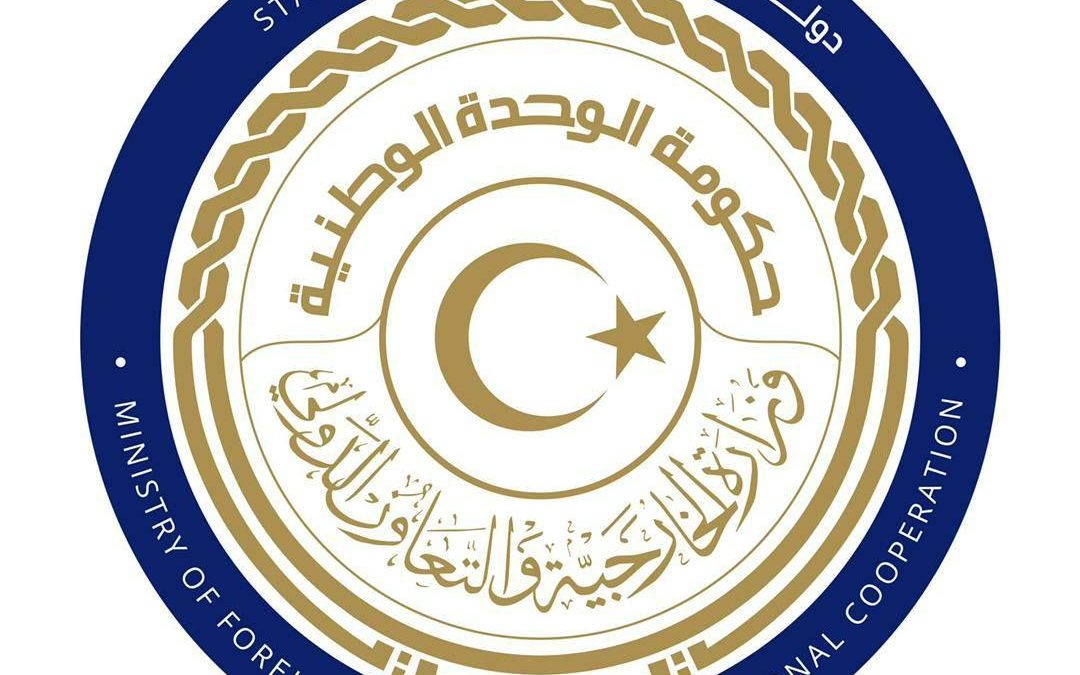
أغسطس 8, 2021
بيــــــــــــــــــــــــــــــان صحــــــــــــــــــــــــــــــــــفي
المركز الليبي لحرية الصحافة يدعو الخارجية للتحقيق في مزاعم التهديدات والتشهير.
طرابلس / 8 أغسطس
يٌبدي المركز الليبي لحرية الصحـــافة بالغ أسفه عن حادث التشهير المٌتعمد بحق الصحفي محمد اللديد الذي يعمل بتلفزيون ليبيا وراديو، وذلك عقب الخلاف الذي نشب مع مدير دائرة الإعلام الخارجي لدي وزارة الخارجية الليبية من قبل بعض المنصات الإخبارية ومواقع التواصل الاجتماعي.
وفقًا للشكوي المٌقدمة من الصحفي اللديد فإن مدير دائرة الإعلام الخارجي محمد الطويل وجه إليه تٌهمًا بتهديده على خلفية حادث إنزال لاعب المنتخب الليبي للكرة المٌصغرة وسام موسي واستبداله بإثنين تبين لاحقًا إن أحدهم نجل نائب ليبي بمجلس النواب.
وعلى إثر ذلك تعرض اللديد لحملة تشويه وتحريض عبر مواقع التواصل الاجتماعي والرسائل، واتهامه بالعمل لصالح وزير الدولة للاتصال والشؤون السياسية وليد اللافي الذي نفي هو الآخر صلته بالواقعة.
ورغم عدم وجود أي أدلة واضحة بعد الاطلاع على المٌراسلات بين اللديد والطويل التي أفادنا بها، ماينفي مزاعم تهديد الأول للمسؤول بالخارجية الليبية وبٌطلانها.
يدعو المركز الليبي لحرية الصحافة وزارة الخارجية الليبية بفتح تحقيق حول مزاعم الاتهامات التي وجهها المسؤول بالخارجية للصحفي اللديد والتحقيق في واقعة التشهير والتهديد معًا، وضمان المٌطالبة بالحقوق من خلال المسالك القانونية والقضائية، وليس عبر صفحات مواقع التواصل الاجتماعي.
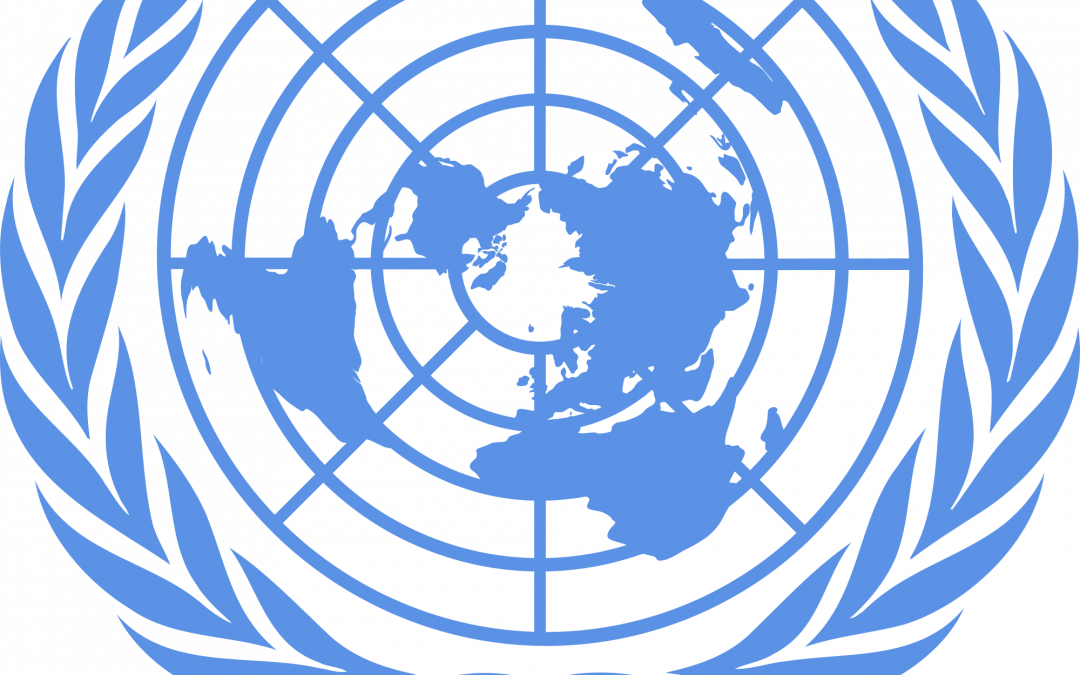
يوليو 16, 2021
Joint NGO Letter:
It is Critical to Renew the United Nations Fact Finding Mission on Libya at the Human Rights Council
14 July 2021
Your Excellency,
The undersigned Libyan, regional and international human rights organizations strongly urge your government to ensure the renewal of the United Nations Fact-Finding Mission on Libya at the 48th Session of the UN Human Rights Council in September 2021.
The undersigned organizations welcomed the establishment of the Fact-Finding Mission (FFM) in June 2020 as a long overdue and necessary step to address rampant impunity in Libya. However, we are concerned that UN budgetary constraints and difficulties related to the Covid pandemic have severely hampered the FFM’s ability to fulfill its mandate – that is, to investigate violations and abuses of international human rights law and violations of international humanitarian law committed since 2016, and preserve evidence to ensure that perpetrators be held accountable. The FFM’s permanent team has only become fully functional in late May 2021. This situation leaves the FFM with around four months to work at full capacity. Moreover, ongoing Covid-19-related movement restrictions will continue to constrain the FFM’s investigative capacity throughout 2021, including its ability to conduct work in Libya, reinforcing the need to extend its mandate beyond September 2021.
The FFM’s renewal is of vital importance to address the current human rights crisis in Libya – as the annex to this letter outlines – by promoting accountability, providing victims of crimes under international law an opportunity to have their voices heard, and addressing the prevailing climate of impunity. Since 2011, Libya’s national justice system has been unable, and largely unwilling, to effectively investigate grave human rights violations and abuses, including against human rights defenders, activists and other civilians, or to hold perpetrators accountable. The few trials of individuals accused of human rights violations that have taken place since 2011 have been fraught with a lack of respect for international fair trial standards. Moreover, senior commanders of militias and armed groups, with a well-documented history of alleged war crimes and other human rights abuses, have been integrated into institutions currently under the Government of National Unity (GNU), further fostering a cycle of impunity. (More information on the human rights situation in Libya is provided in an Annex to this letter.)
Strong international accountability mechanisms with meaningful and equal participation of women and other marginalized groups continue to be necessary to uphold victims’ rights to access justice and effective remedy, including reparations. Respect for human rights and the establishment of pathways for accountability, including international investigative mechanisms such as the FFM, are key elements for restoring the rule of law during Libya’s transition.
In this context, it is critical that the mandate of the FFM on Libya be renewed at the 48th Session of the UN Human Rights Council (September 2021).
Failure to renew the FFM’s mandate will send a dangerous message to actors in Libya that the international community is not committed to ensuring accountability for past and ongoing human rights violations and abuses, and could encourage further crimes and lawlessness during this pivotal period.
Signatories:
Adala For All (AFA) – Libya
Al-Kufrah Peace Organisation – Libya
Amnesty International
Association for Juridical Studies on Immigration (ASGI)
Belady Foundation for Human Rights – Libya
Cairo Institute for Human Rights Studies (CIHRS)
Defender Center for Human Rights (DCHR) – Libya
Empowerment Organisation for Persons with Disabilities – Libya
Heroufil Organisation for Sustainable Development – Libya
Human Rights Watch (HRW)
I Am a Libyan Woman But My Child Is A Foreigner
Independent Human Rights Organisation – Libya
International Commission of Jurists (ICJ)
International Federation for Human Rights (FIDH)
International Peace Organisation – Libya
Lawyers for Justice in Libya (LFJL)
Lawyers for Lawyers
Libyan Association for Tebu Culture
Libyan Center for Freedom of Press (LCFP)
Libyan Crimes Watch
Libyan Women’s Platform for Peace (LWPP)
No Peace without Justice (NPWJ)
OMCT (World Organization against Torture)
180° Organisation for Awareness and Development – Libya
Solidarity Women Support and Empowerment (SWSE)
Un Ponte Per
Women’s International League for Peace and Freedom (WILPF)
Youth Organization for Tawergha – Libya
——————————–
Annex: Summary of Current Human Rights Situation in Libya
Eight months after the signing of the ceasefire agreement in October 2020, the human rights situation remains dire. The Government of National Unity (GNU) appointed in March 2021 faces tremendous challenges, including unifying institutions in a deeply divided, conflict-torn country and preparing the ground for presidential and parliamentary elections scheduled for 24 December 2021. Members of militias and armed groups continue to commit grave human rights violations and abuses, with near impunity, including unlawful killings, torture and other ill-treatment, enforced disappearances, abductions, rape and other sexual violence, and arbitrary arrests and detentions. Under international law, senior officials and commanders can be held responsible for acts committed by their subordinates if they knew or should have known of crimes, and failed to end them or hold those responsible to account.
Human rights defenders, lawyers, members of the judiciary and civil society continue to be targeted for their work by armed groups through unlawful killings, abductions and arbitrary detention, and harassment, threats and intimidation. On 10 November 2020, a group of unidentified armed men shot and killed lawyer and activist Hanan Al-Barassi in Benghazi in broad daylight.
Hundreds including many civilians remain missing from the town of Tarhuna, where authorities said they uncovered over 100 mass graves since June 2020. Most of the bodies remain unidentified.
Although Libyan authorities announced the release of around 1,900 prisoners in 2020, thousands remain arbitrarily detained, without possibility to challenge the legality of their detention, some since 2011. Detainees face torture and other ill-treatment, and are frequently held in cruel and inhuman conditions. Military courts affiliated with the Libyan Arab Armed Forces (LAAF) continue to convict civilians in grossly unfair trials.
Migrants and refugees in Libya remain trapped in an ongoing cycle of abuse, including enforced disappearance, arbitrary indefinite detention in inhuman conditions; torture and other ill-treatment, including sexual violence; unlawful killings; and extortion and forced labour. Despite long-standing promises to rein in this abuse, such violations have continued to be documented in 2021, including in centres officially under the nominal control of the Directorate for Combatting Illegal Migration (DCIM).
Over 245,000 people remain internally displaced due to armed conflict and insecurity according to the International Organization for Migration. LGBTI individuals continue to face harrasment by militias and armed groups.
The International Criminal Court (ICC) Prosecutor reported that two missions were conducted in Libya in 2020. However, without functional Libyan institutions, and sufficient means and political support, the Court’s ability to carry out its mandate remains hampered.
Lack of accountability for abusive militias, armed groups and foreign fighters is fueling further crimes under international law. Of particular concern are considerations by the GNU to grant blanket amnesties for some militias and armed groups.

